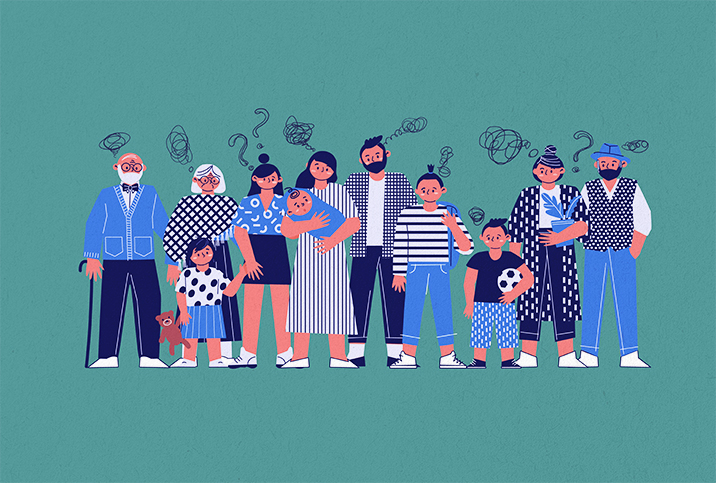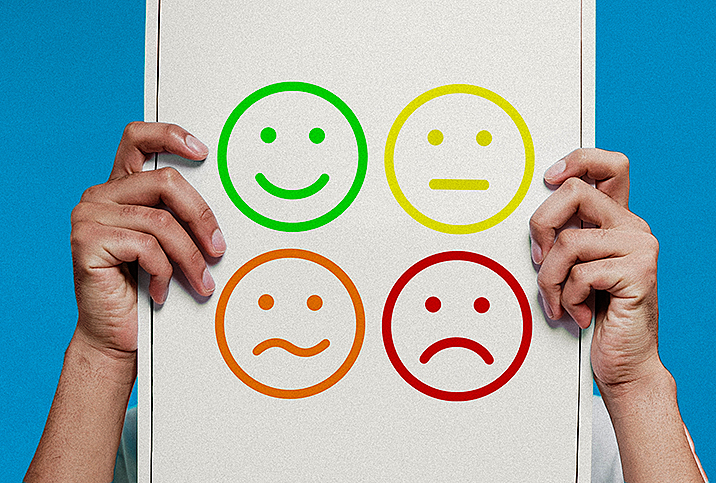Can Trauma or Abuse Cause Someone to Lie?

Interacting with a child or adult who's been physically, sexually or emotionally abused can be complicated, especially if you're not fully aware of their history of abuse. If you confront them with a question they don't like, they may not answer truthfully, because they may be afraid of consequences.
If you're used to cruel punishment of any kind when someone perceives you haven't done what you're told or what's expected of you, a lie may help avoid a concurrent punishment.
'Lying can be a coping mechanism for trauma for both adults and children, because trauma sufferers sometimes don't feel safe enough to tell the truth.'
"Lying is a common trauma response," said Laura, a foster parent who uses just her first name on the popular TikTok account Foster Parenting, in one of her viral videos. "Punishing will not get you the results you want when parenting a child who has experienced neglect or abuse. It can encourage more lying."
The same can be said about adults whose lying habits stem from childhood or abusive relationships.
Why do people lie?
In general, people lie to avoid punishment, embarrassment or other negative consequences.
"Lying can be a coping mechanism for trauma for both adults and children, because trauma sufferers sometimes don't feel safe enough to tell the truth," said psychotherapist Lillian Rishty, L.C.S.W., who owns NYC Therapy Group in midtown Manhattan.
Lying, particularly for children, can create an alternate reality in which an individual feels safe.
"As the child grows up to be an adult, they might maintain that defense," Rishty added.
Additionally, people might lie to protect someone else's feelings and avoid hurting them. In the case of sexual abuse victims, they may be forced to lie to protect the person abusing them.
Compulsive lying occurs when someone lies incessantly out of habit, sometimes for no reason at all.
"It's harder to fathom why some people often tell lies with no clear purpose and when the lies are usually easy to disprove," the American Counseling Association (ACA) states on its website.
The site offers several reasons why this might happen.
"One is that the lie being told may not seem like a lie to the person telling it. The person lying may so badly want the lie to be the truth that the lie becomes his or her actual truth…Such people may also worry they won't be respected if the truth can leave them looking poorly. Instead, they offer a lie that casts them in a good light."
How can friends and family help with lying?
If a child is known to lie because they have a history of abuse, friends and family members should try to understand and empathize with their reason for lying.
"They can be made to understand that it's a coping mechanism and not coming from lack of love—people assume we wouldn't lie to those we love," Rishty said. "Friends and family can help them find a way to experience safety in telling the truth."
"Avoid asking for the truth when you already know the answer," Laura, from Foster Parenting, said in a TikTok video. "Set them up for success. Show; don't tell."
For example, instead of asking "Did you hit that child?" when you already know the answer is yes, say, "I saw you hit that child. Can you tell me why you would do that?" And instead of saying, "Did you clean your room?" when you already know the answer is no, say, "I just saw your room and it's untidy. Let's clean it up together."
It's important to offer connection and support when you know someone is lying.
By removing the opportunity for someone to lie and not punishing them when they do, you can foster healthy discussions about why they feel the need to lie in the first place.
You can break the pattern of lies by making them feel safe in their new environment, whether that's a new foster home or a new relationship. If someone is made aware of their lying and wants to change their ways, therapy is a great place to start to unlearn and gain a deeper understanding of their habits.


















